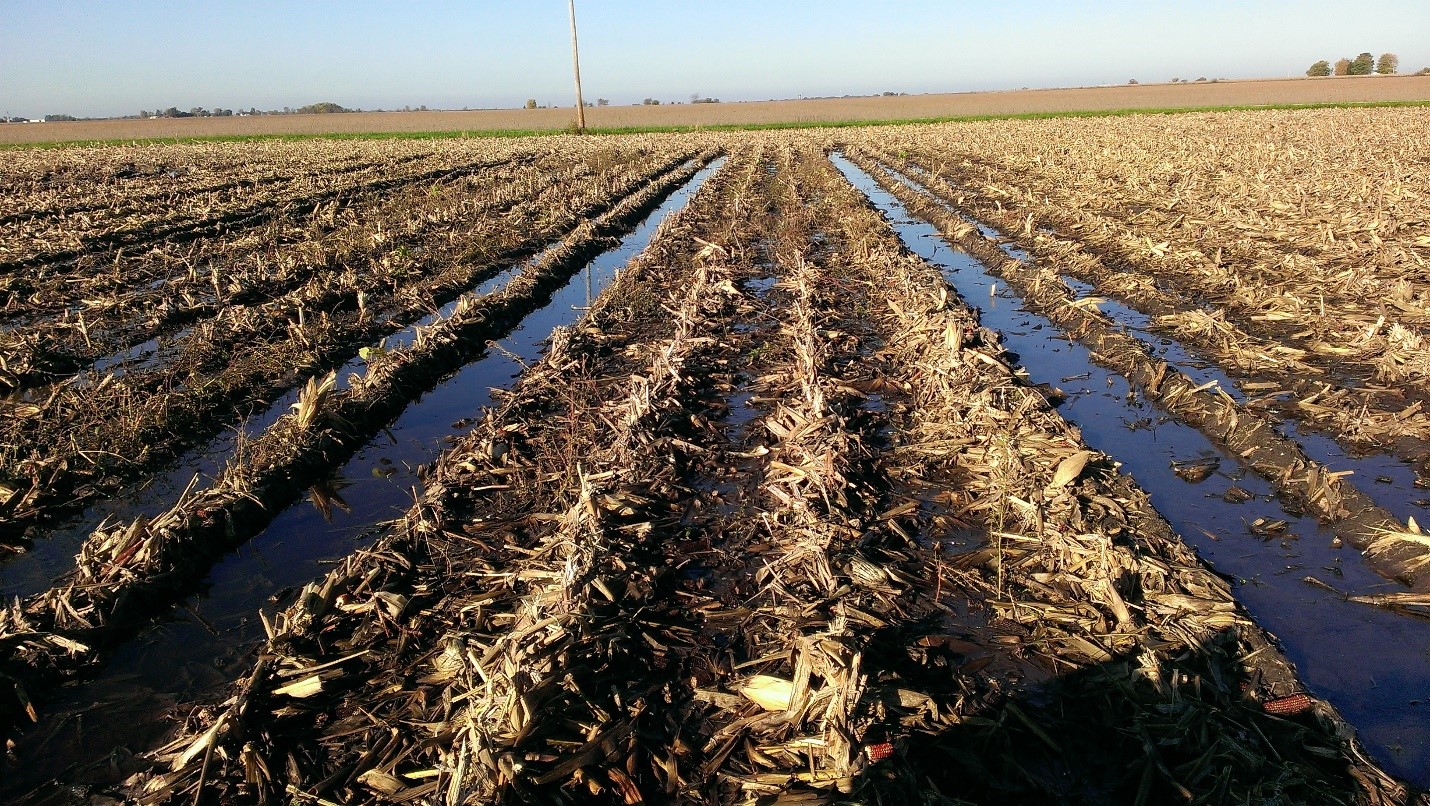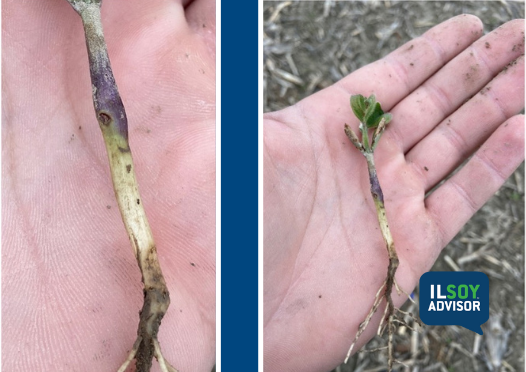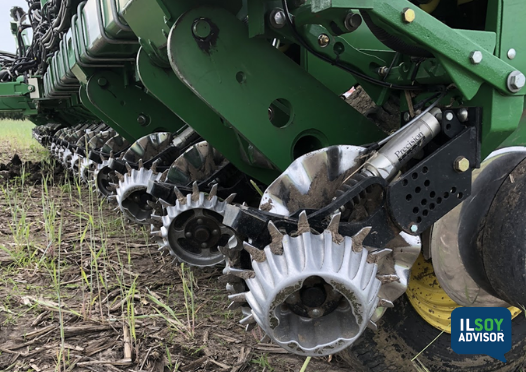ILSOYADVISOR POST
Cold, Wet, Frustrating
We can sum up fall and winter, and now spring, in a few words; cold, wet, frustrating. While we still want to plant as early as possible, we need to consider the consequences, especially as they relate to soil compaction. Compaction creates all kinds of issues whether fall or spring. Filing in ruts creates extra work, whether in the fall or spring. Yield is the bottom line, and yield can definitely take a dive on compacted soils.

Soil compaction is an issue whether soil is wet or dry, because it changes the air, water and plant root interactions in the soil. In wet weather, compaction will reduce air in the soil even further and speed up denitrification, increasing runoff. In dry conditions, compaction can slow down root penetration and reduce available water capacity.
Having probed hundreds of thousands of acres in my career, I can tell you that in many soils I can still find a plow sole caused by moldboard plowing even though it may have been 40 or more years since a moldboard plow was used. This just illustrates the point that compaction is a persistent problem, not just a one growing season problem. Deep compaction caused by moldboard plowing or rutting is much more difficult to remove than surface compaction.
Surface compaction can be detrimental to soil moisture conditions, too. Several years ago we did a septic tank investigation which involved three soil borings to 5 feet. One of the borings was difficult as we got deeper because of moisture issues. We were on a ridgetop near a steeper slope, so excessive rainfall ran off easily.
What does this have to do with farming? The house was already built. Construction equipment had compacted the soil under the dry hole and the other two holes were moist if not wet. This little observation showed how surface compaction can affect soil moisture. Water is the top need to produce high-yielding crops. When you affect infiltration and subsoil moisture, you are setting yourself up for poor yields.
Keep in mind that every piece of farm equipment has the potential to cause soil compaction when it is misused. Rippers and chisel plows will cause compaction when used wet. The points can help drive compaction deeper. A Penn State University article on avoiding soil compaction from 2005 is still relevant today.
My observation is that one of the best tools to reduce the effects of surface compaction is an in-line ripper. It seems to do a better job of reducing compaction across the whole row than a V-Ripper. The best news about the in-line ripper is that it leaves plenty of residue on the surface to improve erosion control.
the effects of surface compaction is an in-line ripper. It seems to do a better job of reducing compaction across the whole row than a V-Ripper. The best news about the in-line ripper is that it leaves plenty of residue on the surface to improve erosion control.
So far, I have not mentioned sidewall compaction. A result of planting in wet soils, sidewall compaction can distort root development and affect germination and emergence. Sidewall compaction can also reduce germination and cause uneven stands. Plant under the right moisture conditions the first time to avoid replanting.
The best piece of advice regarding soil compaction, however, is to avoid field passes. Be patient, your window will come.





Comments
Add new comment